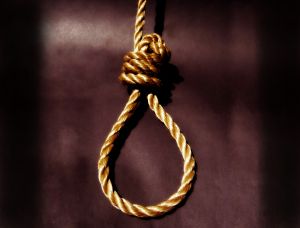Themes
A number of important themes are dealt with in the novel.
Courage
Atticus describes that courage is when you are doomed to failure but still go through with it anyway. Atticus is doomed to failure but still goes thought with the case, the Civil War too could be seen as something the South were doomed to lose, however they fought anyway and Mrs Dubose too is going to die, however she still fights to tackle her Morphine addiction. She is described by Atticus as “the bravest person” he knows. Atticus tells Jem that “I wanted you to see what real courage is, instead of getting the idea that courage is a man with a gun in his hand,” however Atticus was known as “one shot Finch,” which could suggest that he somewhat regrets his actions in the past. This idea is displayed in the quote “it is a sin to kill a mockingbird,” which could be a metaphor for the destruction of innocence. Atticus now feels that he should protect others, even if he is doomed to lose. He fights for Tom's freedom, however he realises that it is his word against a white man's word and in that case the white man always wins, something he hopes to change in the future.

Mockingbird Metaphor
The mockingbird is an important metaphor within the novel. It could be perceived as the idea that we should aim to protect things which do no harm. It is described how all a mockingbird does “is sing its heart out”. Characters within the novel that could be metaphors for mockingbirds are Tom, Boo, Jem, Dill and Dolphus Raymond. All of these characters have had their innocence destroyed; Jem, Scout, Boo and Dill have had to face harsh realities of prejudice, whilst Toms innocence of a crime has been denied. Other references that Scout and Jem are also Mockingbirds is their name “Finch” a small bird.
The two main 'mockingbirds' within the novel are Boo and Tom. Boo is persecuted by gossip and rumour in the town, whilst Tom is persecuted by lynch mob and the jury. Scout describes how hurting Boo would be like “shootin' a mockingbird” and Tom's death is linked with “the senseless slaughter of songbirds”. These references help to make the metaphor easier to understand, enhancing its effectiveness.

The Importance and influence of family
People within Maycomb have certain views of particular families. Aunt Alexandra is one of the main driving forces behind the importance of mixing with the right family, telling Scout she can't play with Walter Cunningham “because-he-is-trash”. There appears to be four main social groups within Maycomb: the upper whites, for example the Finches and Miss Maudie, the lower whites for example the Cunningham’s, the black community and white trash namely the Ewells. Scout however believes that these social divisions are irrelevant describing how, “I think there is only one kind of folk. Folk”.
There is also some debate about what makes a family 'fine'. Scout recalls Aunt Alexandra's belief: “Aunt Alexandra was of the opinion, that the longer a family had been squatting on one patch of land the finer it was”. Atticus, however provides a different interpretation of what makes a family fine: “Fine folk were the people who did the best they could with what they had.” This second analogy is more open-minded and we as the audience can appreciate Atticus's wisdom.

Justice
Justice is also another theme that is dealt with in the novel. We are
initially introduced to Scout's sense of justice. She explains how “Atticus
doesn’t ever just listen to Jem’s side of it, he hears mine
too”. The trial is a major point of injustice: Jem only viewing
the case based on the evidence before him proclaims how “we got
him”, however this is not the case. Scout recalls during the verdict
how “each guilty was a separate stab between them”. The trial
is based on more than just the evidence, but also the deep-rooted prejudices
that exist within the minds of the jury. This idea is highlighted by Atticus
who states “a court is no better than each man of you sitting before
me on this jury”. In the end Tom tries to escape and is shot, he
never truly receives justice. Boo too has been persecuted by Maycomb and
by his father. Boo could be perceived as a metaphor for a mockingbird:
hunting Boo would be like “shootin’ a Mockingbird”.
He saves the children against Bob Ewell, and they in turn protect him.
Reference Tools
Dictionary
Thesaurus
Maps
Scientific Calculator
Periodic Table
Translator
Unit Conversion
Resources
General Writing Techniques
English Language
The Course
Media Texts
Advise, Persuade or Argue
Writing to Advise
Writing to Persuade
Writing to Argue
Poetry from Different Cultures
Cluster 1 Poetry
Cluster 2 Poetry
Poetry Analysis
Describe, Inform or Explain
Writing to Describe
Writing to Inform
Writing to Explain
English Literature
Poetry Introduction
Carol Ann Duffy
Simon Armitage
Pre-1914 Poetry
Structuring an Essay
To Kill a Mockingbird
Introduction
Characters
Themes
Essay Plans

